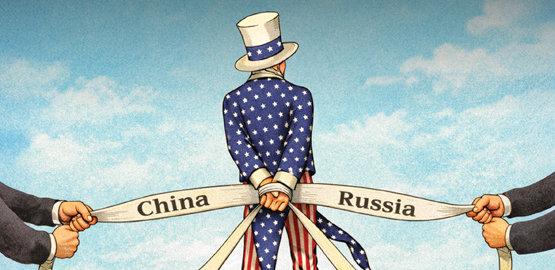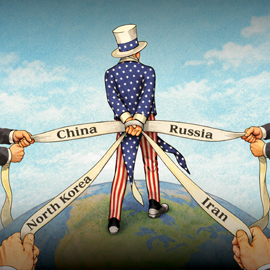Since Donald Trump took office, the growth of North Korea’s nuclear arsenal and the increasing capability and diversity of its ballistic missile force have made that country the most urgent threat to U.S. national security. Observers as diverse as Mark Bowden in the Atlantic, Michael Auslin of the Hoover Institution, and former White House chief strategist Steve Bannon agree that all military options available to the president are bad. How exactly did we get to this point? What policy decisions led to an emerging intercontinental ballistic missile capability and a nuclear arsenal that could rival that of the U.K. by the middle of the next decade? How did we end up with a North Korean leader seemingly more willing to run enormous risks than his father or grandfather? The answer demonstrates once again the venerable adage that “the road to hell is paved with good intentions.” One of the few national figures who consistently raised alarms about U.S policy towards North Korea was former vice president Dick Cheney, and he has proven prescient. The United States now faces the real prospect of a war that Secretary of Defense James Mattis says would be “catastrophic.” This story should be studied carefully before it repeats itself—say, in Iran.
For almost three decades, CSBA has been a reliable source of independent, path-breaking research focused on the future of defense.


The heart of CSBA is our staff of uniquely qualified defense experts who conduct in-depth strategic and budgetary analyses.
Latest News
Hostages, Assassinations, and the Future of National Defense
Eric and Eliot discuss the multinational hostage return deal with Russia, the Israeli strikes in Beirut and Tehran, and the recent release of the National Defense Strategy Commission report.
News Coverage: National Defense Strategy Commission Report
Five CSBA experts significantly contributed to the efforts of the Commission on the National Defense Strategy for the United States. We invite you to explore a selection of related news coverage.
Podcast: Paul Nitze: National Security’s Forgotton Man
Eric and Eliot host James Graham Wilson, an historian in the Department of State's Historian's Office, to discuss his new book, America's Cold Warrior: Paul Nitze and National Security From Roosevelt to Reagan.
US faces growing threats, and we’re woefully unprepared. Here’s how to fix that.
The national security threats against the U.S. are as significant as and more complex than they were at the height of the Cold War or even World War II. We are not prepared to meet these threats today and could, in very short order, find ourselves in a war across multiple theaters with peer and near-peer adversaries that we could lose.
CSBA Welcomes New Team Members
The heart of CSBA is our team of uniquely qualified defense experts and operations professionals. We are thrilled to introduce staff who have joined our team in 2024 and those who have recently stepped into new roles within our organization.
Video: Eric Edelman and Mara Rudman on U.S. Military Readiness
The Commission on the National Defense Strategy Vice Chair Eric Edelman and Commissioner Mara Rudman talk about the bipartisan panel’s report on U.S. defense strategy and military readiness.























